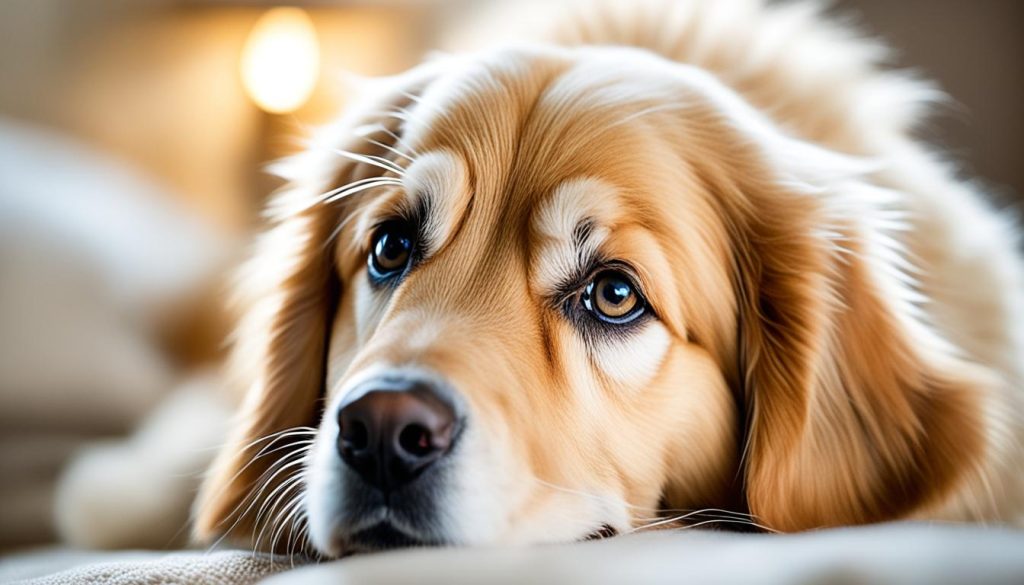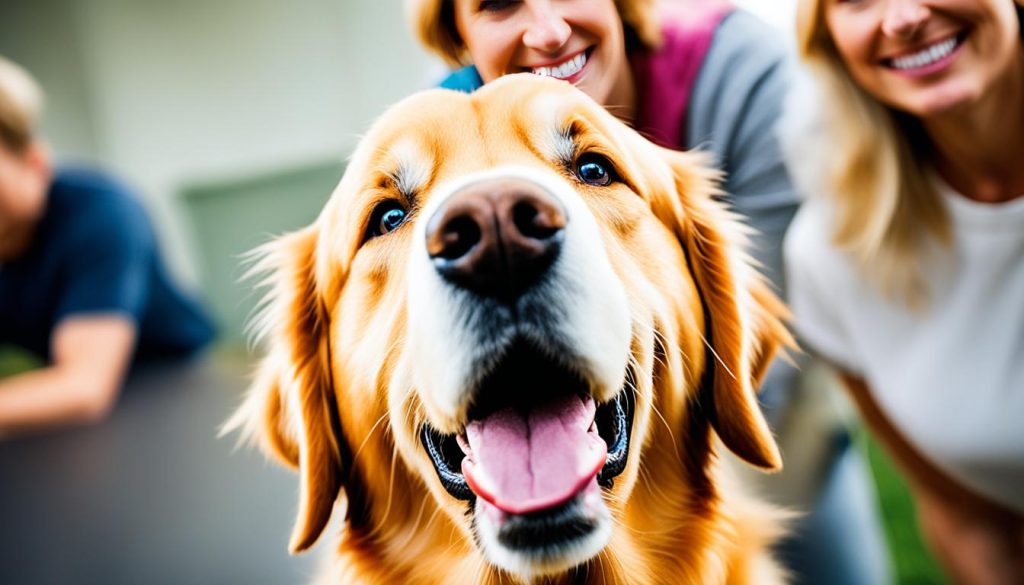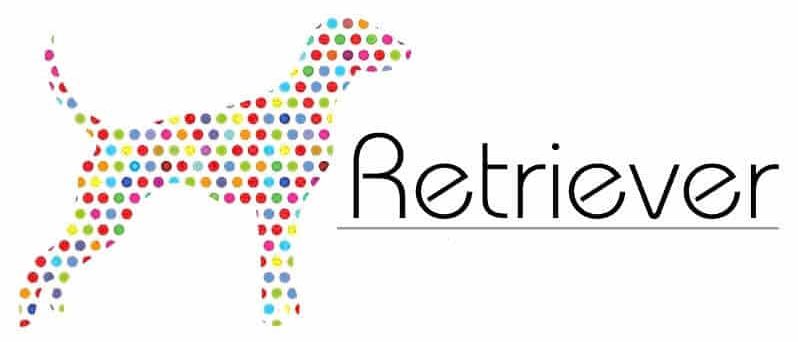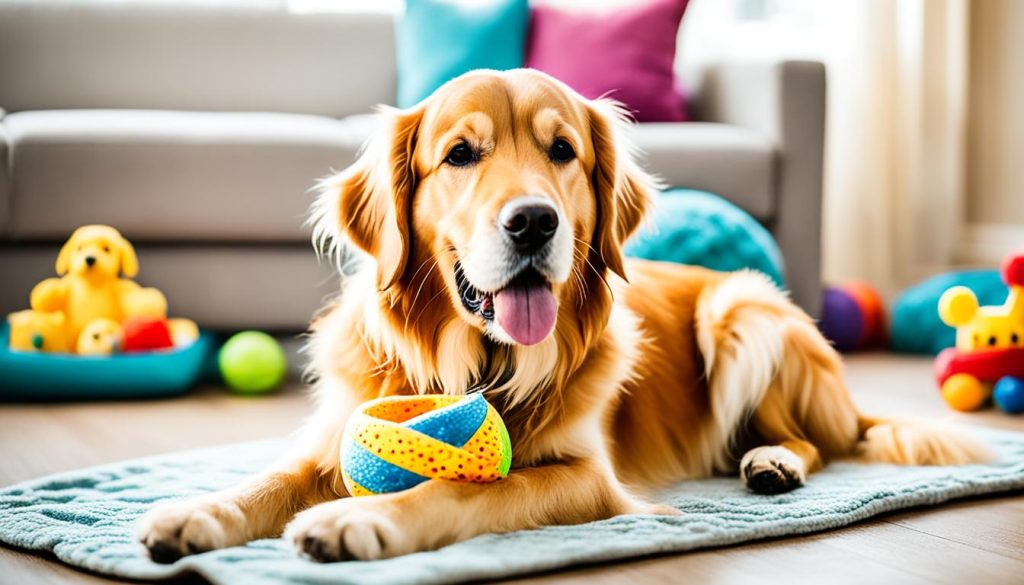Introducing a small golden retriever to your household brings the iconic breed’s charm into more compact environments. Designed for those with limited space, these miniatures are highly adaptable and deeply endearing. This guide delves into the specifics of nurturing a small retriever breed. It highlights care essentials and celebrates the joy these petite companions add to our lives. For individuals captivated by the Golden Retriever’s spirit yet limited by spatial constraints, miniature versions embody the breed’s adaptability and affection.
Key Takeaways
- Insights on the unique characteristics of small golden retrievers suited for compact living.
- Understanding care essentials crucial for maintaining the well-being of a miniature golden.
- Guidance on accommodating a small retriever breed into less spacious environments.
- Practical tips to ensure these smaller goldens are as healthy and content as their larger kin.
- Appreciating the affection and companionship of a small sized golden in the comforts of home.
Understanding the Small Golden Retriever Breed
The allure of the petite retriever lies not only in their adorable stature but also in their amiable disposition, stemming from a well-established lineage. The essence of the tiny golden dog is found in its scaled-down frame, making it an ideal companion for those who may be constrained by space but are seeking the joyful companionship of a golden retriever.

Origin and History of Small Retriever Breeds
The history of small retriever breeds is fascinating, unfolding as a chapter in canine evolution tailored to the human desire for more compact pets. The lineage of the little golden dog often points to a selective breeding process where the aim was to encapsulate the trademark golden retriever temperament within a smaller physical form. This convenience-sized breed may occasionally result from a naturally occurring genetic variance, leading to an affectionate dog with all the charm of a tiny golden dog packed into a pet-friendly size.
Physical Characteristics of a Miniature Labrador
The miniature labrador, a prominent member of the small sized golden grouping, features a suite of physical traits that distinguishes them from their larger counterparts. Their stature remains rooted in the golden retriever’s iconic look, yet their dimensions serve the needs of a modern pet owner searching for a dog to fit in a less expansive living space.
| Characteristic | Miniature Labrador | Standard Golden Retriever |
|---|---|---|
| Height | 38 – 42 cm | 51 – 61 cm |
| Weight | Up to 22 kg | 25 – 34 kg |
| Coat Texture | Dense and water-resistant | Thick, water-repellent double coat |
| Colour Variations | Cream, golden, red | Light golden to dark golden |
Temperament and Personality Traits of Petite Retrievers
The petite retriever’s temperament revels in their larger kin’s sociable and gentle nature. Despite their modest size, they radiate the intelligence and affable character of the golden retriever, affirming their place as cherished family members. Their adaptability to smaller domiciles does not diminish their spirited heart, making the little golden dog an epitome of the phrase ‘good things come in small packages.’
With their storied background, distinguished physical attributes, and endearing personalities, the small sized golden lineage positions itself as a treasured addition to any home, boasting all the virtues of the golden retriever breed on a more modest scale.
Small Golden Retriever Care Essentials
Owning a compact retriever is a deeply fulfilling journey. It necessitates a specific set of care essentials. These are crucial to preserve their health and vitality. Adapting your care practices to the distinct requirements of a miniature golden ensures a joyful and robust companion.

Best Diet for a Compact Retriever
The diet of a compact retriever must be nutrient-dense yet portion-control is key to avoid overfeeding. A balance of proteins, fats, and carbohydrates is essential. It helps sustain their energy and supports their muscular structure. Formulas specifically designed for small-breed dogs are exceptionally beneficial.
Exercise Needs of Miniature Goldens
Miniature goldens possess an innate zeal for life, mirroring their larger brethren. Their exercise regimen should combine physical activity, such as short walks, with mental engagement through interactive play. It is critical to avoid excessive exercise to prevent stressing their developing joints.
Grooming Your Little Golden Dog
Grooming is vital not just for aesthetic reasons but as a core part of their care. Regular brushing helps prevent tangles and ensures healthy oil spread across their coat. Incorporating ear cleaning and nail trimming into their grooming routine guarantees a well-rounded approach.
Health Considerations and Veterinary Care
It is crucial to be proactive about health concerns. Regular veterinary check-ups facilitate the early identification of any genetic issues. Preventive measures, including vaccinations and parasite control, are fundamental in protecting your compact retriever’s health.
| Consideration | Diet | Exercise | Grooming | Veterinary Care |
|---|---|---|---|---|
| Fundamentals | Nutrient-rich, small-breed formula | Balanced physical activity and mental play | Regular brushing, ear and nail care | Annual health checks, vaccinations |
| Frequency | 2-3 meals a day depending on age | Daily (20-30 minutes) | Weekly brushing, monthly ear/nail check | As recommended by vet |
| Key Consideration | Portion control | Avoid overexertion | Coat health | Genetic health screening |
Training and Socialising Your Small Sized Golden
Embarking on the journey of training a small golden retriever offers rich rewards. This challenge fosters a profound bond between pet and owner. These diminutive canines, blessed with sharp intelligence and a desire to please, are remarkably receptive to positive reinforcement. This responsiveness renders them eminently trainable, evolving into exceptional companions.
Initiate training sessions promptly, leveraging the small retriever breed’s pliable puppy phase. Conduct brief, yet captivating sessions to sustain their concentration; utilise palatable treats as incentives for mastering new commands. Integral to their growth, socialisation ushers these pups into diverse settings. This exposure cultivates assurance and grace.
- Training: Employ treats and verbal commendations to foster desirable conduct. Ensure commands remain uniform and repeatable.
- Socialising: Introduce your diminutive retriever to varied environments. This ranges from serene parks to dynamic urban areas, enhancing their adaptability.
Guiding them through foundational commands like ‘sit’ and ‘stay’, or advancing to complex tasks such as item retrieval, necessitates patience. The learning aptitude of your compact ally may astonish you, as they adeptly process and adhere to training stimuli. Yet, recognising their unique disposition remains imperative. While some thrive under explicit guidance, others benefit from a more lenient method. A tailored approach is also advisable during socialisation endeavours.
“Offering your small golden retriever a breadth of encounters, from new human interactions to meetings with other creatures, cultivates a sociable, well-adjusted dog. These formative experiences lay the groundwork for a congenial and extroverted canine disposition.”
To sum up, the amalgamation of dedicated training and comprehensive socialising propels your small sized golden towards becoming a courteous, versatile, and content companion. Through this journey, owners will witness their pint-sized golden dog adapt to a myriad of experiences, significantly enhancing the lives of everyone involved.
Conclusion
The Small Golden Retriever Guide intertwines various aspects of care, emerging as an indispensable resource for those enchanted by the small golden retriever. It guides owners through the complexities of raising a smaller breed, ensuring their well-being even in constrained spaces. This guide highlights the critical elements required to prioritize a dog’s health, covering everything from dietary requirements to nurturing its physical and emotional health.
The narrative reveals the miniature Labrador not just as an object of affection but also as a symbol of versatility, ideal for those desiring the golden retriever’s temperament but in a more compact form. The comprehensive approach to care, training, and socialization outlined in this guide presents a definitive roadmap for pet owners. Adhering to this path demands unwavering dedication but guarantees a profound connection and a multitude of happy moments.
Detailed explanations regarding dietary, grooming, and healthcare needs, as well as exercise and training methods, offer tangible advice for maintaining a healthy pet. Investing in a small golden retriever, with not only financial resources but also time, love, and effort, results in enduring loyalty and affection. These diminutive goldens demonstrate that companionship’s depth is not measured by size, but by the heart’s boundless ability to love.
FAQ
What defines a Small Golden Retriever and how do they differ from the standard breed?
A Small Golden Retriever, often known as a miniature gold or compact retriever, typifies a condensed version of the customary Golden Retriever. Their development suits smaller abodes, stemming either from selective breeding or a random genetic mutation. Despite their reduced size, they inherit the quintessential amiable and affectionate disposition characteristic of standard Golden Retrievers.
What are the traits and personality of a Petite Retriever?
Petite Retrievers, identified also as small-sized goldens or tiny golden dogs, exhibit a blend of sociability, gentleness, and intellect. With a disposition geared towards pleasing, they excel within family settings. They do exceptionally well in living scenarios where constant interaction with their human counterparts is feasible, even in constrained spaces such as flats or apartments.
How should I care for my Miniature Golden’s coat and grooming needs?
The coat of a Miniature Golden demands thorough grooming to sustain its sheen and avert tangling. Routine brushing, occasional baths, and vigilance for parasites like ticks and fleas are advised. Ensuring the cleanliness of their ears and the neatness of nails is vital for fostering prime health conditions.
What is the best diet for a Compact Retriever?
Feeding a Compact Retriever necessitates a diet tailored for small breed canines, rich in protein to cater to their buoyant energy needs. It’s of paramount importance to gauge their physical exertions accurately, thereby providing a nutrient-rich diet while sidestepping the pitfall of overfeeding, as this can precipitate obesity.
What are the exercise requirements for a Small Retriever Breed?
Small Retriever Breeds mandate consistent physical activity to preserve both their physical and mental wellbeing. Their requirement for exercise tends to be moderate compared to that of their larger counterparts. Incorporating daily strolls, playful engagement, and cognitive stimulation through interactive toys or training can significantly contribute to their contentedness and fitness.
Are there specific health considerations I should be aware of for my Little Golden Dog?
For Little Golden Dogs, it is imperative to be vigilant for prevalent genetic conditions such as hip dysplasia, cardiac issues, and ocular anomalies. Adherence to regular veterinary examinations, a nutritious diet, and suitable physical activity is essential in circumventing and controlling potential health complications.
How should I approach training and socialising my Small Sized Golden?
Initiating training and socialisation for a Small Sized Golden at an early juncture, emphasising positive reinforcement, is crucial. A steadfast approach in training and early exposure to diverse entities and environments are instrumental in nurturing their confidence and etiquette. These retrievers usually exhibit rapid learning capabilities and are amenable to mild, incentive-based training techniques.
What are the advantages of having a Tiny Golden Dog compared to a larger retriever?
Possessing a Tiny Golden Dog presents numerous benefits for individuals in confined living arrangements or for those who favour a less sizeable canine associate. Their reduced spatial requirements, manageability, and comparatively modest exercise demands render them an impeccable option for a variety of habitation conditions.

